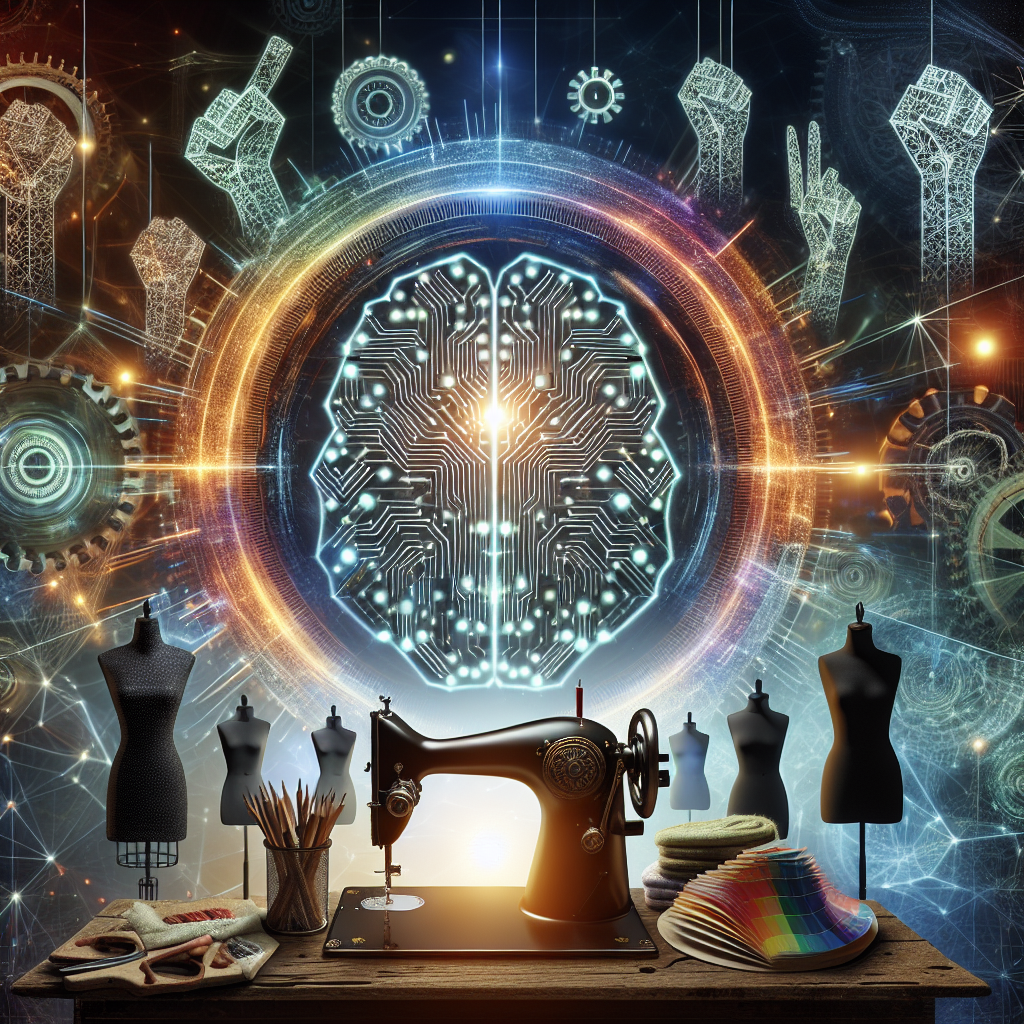The integration of artificial intelligence (AI) in the fashion industry has been a game-changer in recent years, revolutionizing the way brands design, produce, market, and sell their products. As we look forward to 2022, there are several emerging trends in the AI fashion revolution that are worth keeping an eye on. From virtual try-on technologies to personalized shopping experiences, here are some key trends to watch in the coming year.
1. Virtual Try-On Technology: Virtual try-on technology has become increasingly popular in the fashion industry, allowing consumers to try on clothes virtually before making a purchase. This technology uses AI algorithms to analyze body measurements and create a digital avatar that can try on different clothing items. In 2022, we can expect to see more brands adopting virtual try-on technology to enhance the online shopping experience for their customers.
2. Personalized Shopping Experiences: AI is being used to create personalized shopping experiences for consumers, based on their browsing history, purchase behavior, and preferences. By analyzing data from customer interactions, AI algorithms can recommend products that are tailored to individual tastes and preferences. In 2022, we can expect to see more brands leveraging AI to deliver personalized shopping experiences that drive customer engagement and loyalty.
3. Sustainable Fashion: Sustainability is a growing concern in the fashion industry, and AI is playing a key role in helping brands reduce their environmental impact. AI algorithms can analyze data on production processes, materials, and supply chains to identify opportunities for improvement and reduce waste. In 2022, we can expect to see more brands using AI to make their operations more sustainable and environmentally friendly.
4. Influencer Marketing: Influencer marketing has become a major trend in the fashion industry, with brands partnering with social media influencers to promote their products. AI is being used to identify the right influencers for a brand’s target audience, analyze the impact of influencer campaigns, and measure ROI. In 2022, we can expect to see more brands using AI to optimize their influencer marketing strategies and maximize their reach.
5. Customization and Personalization: AI is enabling brands to offer more customization and personalization options to their customers, allowing them to create unique and personalized products. From customizable clothing designs to personalized styling recommendations, AI is helping brands cater to individual preferences and create more meaningful connections with their customers. In 2022, we can expect to see more brands embracing customization and personalization as a way to stand out in a crowded market.
6. Augmented Reality (AR) Experiences: AR technology is being used to create immersive and interactive shopping experiences for consumers, allowing them to virtually try on clothes, accessories, and makeup. By combining AI and AR technologies, brands can create engaging and personalized experiences that drive customer engagement and increase sales. In 2022, we can expect to see more brands investing in AR technology to enhance the online shopping experience for their customers.
7. Data Analytics and Insights: AI is enabling brands to collect and analyze vast amounts of data on customer behavior, market trends, and product performance. By leveraging AI-powered data analytics tools, brands can gain valuable insights that inform their decision-making and drive business growth. In 2022, we can expect to see more brands using AI to harness the power of data analytics and gain a competitive edge in the fashion industry.
8. Supply Chain Optimization: AI is helping brands optimize their supply chains by predicting demand, optimizing inventory levels, and streamlining production processes. By using AI algorithms to analyze data on consumer behavior and market trends, brands can make more informed decisions that reduce costs and improve efficiency. In 2022, we can expect to see more brands leveraging AI to optimize their supply chains and drive operational excellence.
In conclusion, the AI fashion revolution is poised to transform the industry in 2022 and beyond. From virtual try-on technologies to personalized shopping experiences, AI is enabling brands to create innovative and engaging experiences that drive customer engagement and loyalty. By embracing these emerging trends, brands can stay ahead of the competition and capitalize on the opportunities that AI technology has to offer.
FAQs:
Q: How is AI being used in fashion design?
A: AI is being used in fashion design to create virtual prototypes, analyze trends, and optimize designs. By using AI algorithms to analyze data on consumer preferences and market trends, designers can create more innovative and appealing products that resonate with their target audience.
Q: How is AI being used in online shopping?
A: AI is being used in online shopping to personalize the shopping experience, recommend products, and optimize the user interface. By analyzing data on customer behavior and preferences, AI algorithms can deliver personalized recommendations and create a seamless shopping experience that drives engagement and conversions.
Q: Is AI replacing human designers in the fashion industry?
A: While AI is becoming increasingly important in the fashion industry, it is not replacing human designers. Instead, AI is augmenting the creative process by providing designers with valuable insights and tools that enhance their creativity and efficiency.
Q: How can brands leverage AI to improve sustainability?
A: Brands can leverage AI to improve sustainability by analyzing data on production processes, materials, and supply chains to identify opportunities for improvement. By using AI algorithms to optimize operations and reduce waste, brands can make their operations more sustainable and environmentally friendly.
Q: What are the challenges of integrating AI in the fashion industry?
A: Some of the challenges of integrating AI in the fashion industry include data privacy concerns, technical limitations, and the need for specialized skills and expertise. Brands must overcome these challenges by investing in training, security measures, and compliance with regulations to harness the full potential of AI technology.

